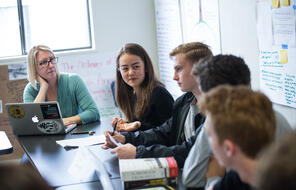Breadcrumb
This resource is part of:
Roy Hellenberg and Dylan Wray on Democracy
At a Glance
Language
English — USSubject
- Civics & Citizenship
- Democracy & Civic Engagement
Roy Hellenberg and Dylan Wray on Democracy
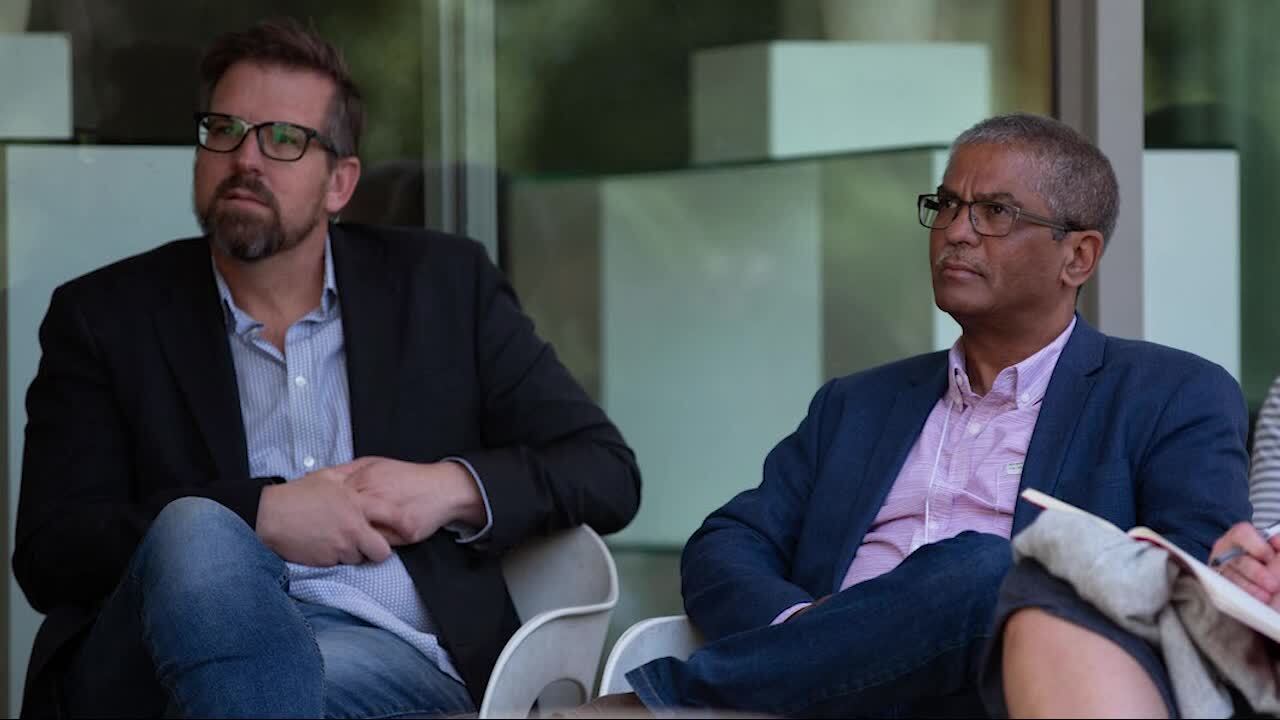
[MUSIC PLAYING]
Hi, I'm Jocelyn Stanton with Facing History and Ourselves. This week in What Makes Democracy Work, we consider how democracy varies from country to country. We hear from two educators in South Africa Roy Hellenberg and Dylan Wray. Roy is a longtime educator and administrator. And Dylan runs an organization called Shikaya, which supports teachers and school leaders. Roy and Dylan discuss how South Africa's particular history and culture inform its current democracy.
I don't know where to start with that question because it's such a huge question. And I think what makes democracy work in one place doesn't necessarily make it work in another place. So I think let me start with core principles that I think works in any way.
And I think at the bottom of that is the willingness to engage with ideas in a manner that encourages critical thinking, that encourages people to enjoy different perspectives on the matter and believe that your different perspective helps to give a more complete picture rather than seeing your different perspective as being opposed to mine.
So that's why I say what makes democracy work in one place doesn't necessarily make it work in another place. So what I've described is the opposition of ideas in the Western democracy context seems to work well. It seems to be what people desire from democracy, that as long as ideas can be put forward, the fact that we could engage around those two ideas and that you could express your idea and I could express my idea is the sum total of democracy.
Whereas I, in my context-- and I believe-- I don't know if I can speak for an African context. But I'll attempt to anyway. I think in an African context, adversarial displays of democracy like that, oppositional displays, I guess, is the best way to say it. While it's important, it doesn't capture the sense of community that I believe is almost inherent in African culture.
And so what that demands is then rather opposition of ideas so you can still have different ideas. But the understanding is that your difference enhances my understanding and grows it and develops it and makes it bigger and larger. And so I can still hold to my view. But I can see how your view gives me a more complete picture. And that then preserves community.
So what becomes our guiding principle is the sense of community, not community at all costs where we say, so I will suppress my idea because it's different to yours. And so I don't want to disturb this kind of peace. But instead, I'm saying that I express my idea in such a way and I listen to your idea in such a way so that my aim is to preserve community.
I think we are far too preoccupied with one form of democracy. And it's a Western form of democracy that gets exported. And so we believe that's the only form of democracy. But I think African expression of democracy, I think the world must create a space for that view of democracy and that understanding of democracy, that there's a balance between individual and community that's held in a gentle balance.
And it's not a prescriptive balance. It's going to be different in South Africa from community to community from circumstance to circumstance. And so it requires a set of skills that instead of focusing on formula is focusing on the skill of knowing to what degree the individual needs to come to the fore and to what degree the community needs to come to the fore.
[MUSIC PLAYING]
But I think we often look for easy answers and formula to solve issues. And so we ignore the complexity of it.
[MUSIC PLAYING]
We asked Dylan to say more about the communal orientation of South African democracy.
So I think there's a word called "ubuntu," which I'm sure many have heard before, which essentially is this belief that I am because you are. And we're all connected. And my identity is tied to the identity of others.
And it's not just a South African thing. And I suppose if there's anything uniquely African, probably ubuntu is one value or an idea that stretches across most of the continent. And so there is-- for centuries, there's been this idea of community being more important than the individual.
And in early societies and even societies that were around and thriving when Europeans arrived, there was always a sense that I am only who I am because I am part of a community of others. And that made sense because the people needed each other in communities and villages and in very complicated systems and societies and cities that emerged a few centuries ago in Africa. And I think that idea has remained.
So I suppose the ubuntu, the sense of community is there in perhaps in everyday experience of many South Africans and feeling it and needing it. And our constitution in many ways would have been-- was framed along those lines. It came out of things like the Freedom Charter, which said things like everyone should have a house; anyone should have an education and have land.
But I think what's happened is as we've found our way into 20 years of democracy, we've also found that there are individual needs are important to some and those selfish needs need to be met. And so I think how democracy is playing out at the moment seems to be more in line with other democracies perhaps, which is about the individual and the individual is important and the individual can succeed and the individual can succeed. But I think our constitution and the framing of that was definitely with a broader sense of community when it was created.
[MUSIC PLAYING]
I think, ultimately, society is judged by how it treats the most disempowered. And so I guess for me, a democracy must be judged by how it deals with its most vulnerable. And I struggle to make that work in my head that in South Africa-- well, in KwaZulu-Natal, 60% of the households in the eThekwini municipality live below the poverty line. Is that democracy, you know?
So how do we resolve those issues? How do we protect those that are most vulnerable? How do we use our right to speak up, not to speak up just for ourselves all the time? And we're not encouraging, we're not we're not educating young people that sometimes, you have to use your vote for what's in the best interests of the country. Even though that political party may not represent your interests, you know that they are best placed to address the issues of the majority of South Africans.
[MUSIC PLAYING]
Have these ideas from South Africa pushed your thinking about what makes democracy work? What insights about community and the common good would you like to apply to your own civic life? To learn more about what makes democracy work, please visit our website at facinghistory.org/democracy-and-us.
Roy Hellenberg and Dylan Wray on Democracy
South African educators Roy Hellenberg and Dylan Wray discuss democracy outside of a western context, connecting it to the idea of ubuntu.
You might also be interested in…
10 Questions for the Future: Student Action Project
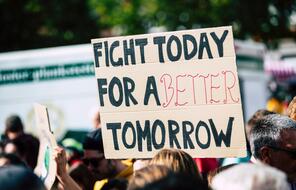
10 Questions for the Present: Parkland Student Activism
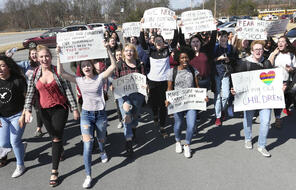
Standing Up to Hatred and Intolerance

#IfTheyGunnedMeDown
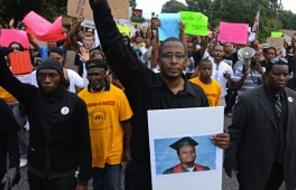
The Impact of Identity
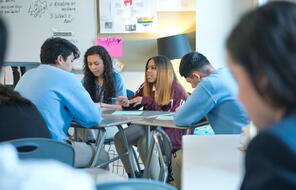
The Power of Images
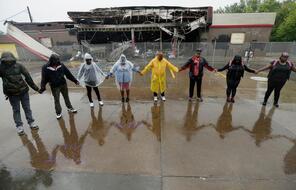
Preparing Students for Difficult Conversations
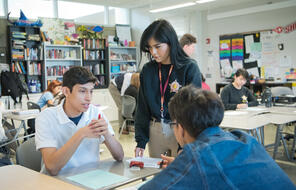
Social Media and Ferguson
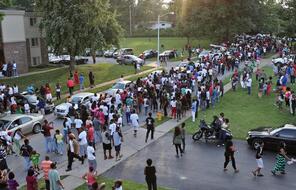
Verifying Breaking News

Facing Ferguson: News Literacy in a Digital Age

What Aspects of Our Identities Do We Show to Others?
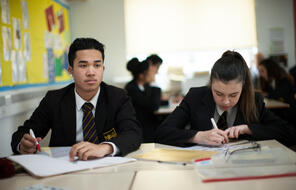
How Do Communities Define We & They?
